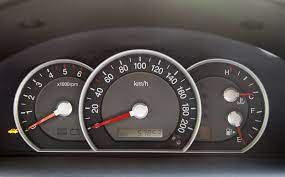Mileage is a critical factor when it comes to buying or selling a used car. It affects the car’s value and can give potential buyers an idea of how well the vehicle has been maintained and how much life it may have left.
This blog post will delve into the reasons why mileage influences car value and what other factors you should consider when purchasing a used vehicle.
Depreciation and Mileage
Depreciation is the reduction in a car’s value over time, and mileage is one of the primary factors contributing to depreciation. The moment a car is driven off the dealer’s lot, its value begins to decrease, and each mile driven further affects the car’s worth.
Generally, a car’s value will drop by around $1.50 to $3 per mile during its first 3,000 miles, averaging a decrease of $5,000 to $10,000 in value.
Mileage Milestones
There are several mileage milestones that significantly impact a car’s value:
- 30,000 to 40,000 miles: At this point, a car’s full warranty often expires (typically after 36,000 miles), and many manufacturers recommend a major service, which can be costly.
- 60,000 to 70,000 miles: Vehicles often require another significant service around this milestone, and extended warranties usually expire.
- 100,000 miles: This milestone represents a psychological barrier for many buyers, who view a car with over 100,000 miles as less valuable.

Wear and Tear
High mileage indicates that a car has experienced more wear and tear, potentially leading to increased maintenance costs and a shorter remaining lifespan. Vehicles with lower mileage generally have fewer signs of wear and are perceived as more valuable.
Maintenance and Service History
While mileage is a key factor in determining a car’s value, other elements such as the vehicle’s service history, model year, and overall condition also play a crucial role. A well-maintained car with higher mileage might be worth more than a poorly maintained vehicle with lower mileage.
Documented maintenance is vital to car buyers, as it can provide insight into how well the car has been taken care of .
Perception and Market Demand
Perception also plays a role in how mileage affects car value. As a general rule, for every 20,000 miles added to a vehicle’s total, its value may decrease by around 20%. However, this can vary depending on the car’s make, model, and overall condition. Market demand and the preferences of potential buyers can also impact a car’s value, regardless of its mileage.